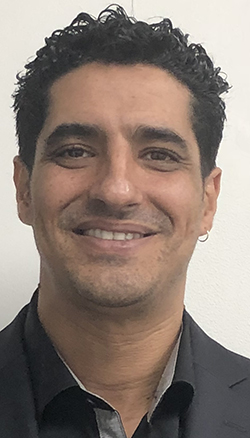By Shahar Masori

SAN DIEGO — In Israel, religion plays a role that has been shaped over millennia, making the land itself a living museum of spiritual evolution. Throughout its history, Israel has hosted a procession of religious traditions—each leaving its mark like footprints on the sands of time. From the Ancient Canaanite practices to Biblical Judaism, Zoroastrianism, Hellenistic influences, Christianity, Samaritanism, Islam, the Druze faith, the Baha’i Faith, Modern Christianity, and Modern Judaism, the region’s spiritual landscape is as diverse as it is ancient.
Growing up, my religious world consisted of traditional Judaism. Israel was the holy land of the Jewish people, a fact that seemed as unchangeable as the hills themselves. But my understanding of this began to shift during a visit to Jerusalem when I was just six years old. I went to visit my oldest sister, who was studying in the city, and she took me to explore the different religious sites. For the first time, I saw a church—a grand structure filled with people wearing heavy black robes and large crosses around their necks. This was the Greek Orthodox Patriarchate of Jerusalem, and it was my first encounter with Christianity. I remember being utterly amazed. How could it be that in the Holy City of Jerusalem, a place I thought belonged solely to Jews, there existed this entire other world?
That experience was like someone had flipped a switch in my young mind. From then on, I began to see the religious diversity that surrounded me, something I had been previously blind to. It was as if every corner I turned revealed a new layer of Israel’s complex spiritual heritage.
Religious diversity is like a symphony, where each religion is a different instrument. When played together, they create a complex and beautiful harmony, each adding its distinct sound to the overall composition. But what happens when one of those instruments is out of tune or overpowering the others? That, in a nutshell, is the essence of the religious conflicts that have been, and still are, very much alive in Israel.
Now, let’s hop across the ocean to the United States, where religious diversity also plays a significant role, but in a completely different symphony. The U.S. is like a grand jazz ensemble, where improvisation is key. Each faith brings its own unique rhythm, and the result is a dynamic, ever-changing melody. The First Amendment ensures that no single instrument dominates the ensemble, allowing for a broad range of beliefs and practices to coexist. You can have a Baptist church on one corner, a mosque on another, and a Buddhist temple just down the road. The diversity is staggering, and the freedom to practice—or not practice—religion is integral to American society.
But even in the U.S., this symphony isn’t without its discordant notes. Just like in Israel, conflicts arise when one belief system seems to drown out others, or when cultural tensions flare. However, the approach to handling these conflicts often differs. In Israel, religion is deeply tied to national identity and politics, making it a central, sometimes contentious, part of public life. In the U.S., the separation of church and state—theoretically—keeps these spheres apart, though in practice, the boundaries often blur.
What’s fascinating to me, as someone who has lived in both Israel and the U.S., is seeing how each country’s unique blend of religious diversity shapes social norms, public policy, and even everyday interactions. In Israel, religious holidays dictate the rhythm of life, with the entire country seemingly pausing for Shabbat or bursting into celebration during Purim and Passover. In the US, while Christmas and Easter have a significant cultural impact, the sheer variety of holidays celebrated—from Diwali to Hanukkah to Ramadan—reflects the country’s melting-pot nature.
So, when I think back to that six-year-old boy standing in awe at the steps of a Jerusalem church, I realize that my journey has been one of learning to appreciate the music of religious diversity, both in Israel and in the U.S. Each country plays its own melody, sometimes harmonious, sometimes discordant, but always rich and complex. And in this ever-evolving symphony, there’s a place for every voice, every belief, and every story, or so we hope.
*
Shahar Masori was raised in Hadera, Israel, and immigrated to San Diego in 2000, where he helped build a balloon decor business and raised two sons.